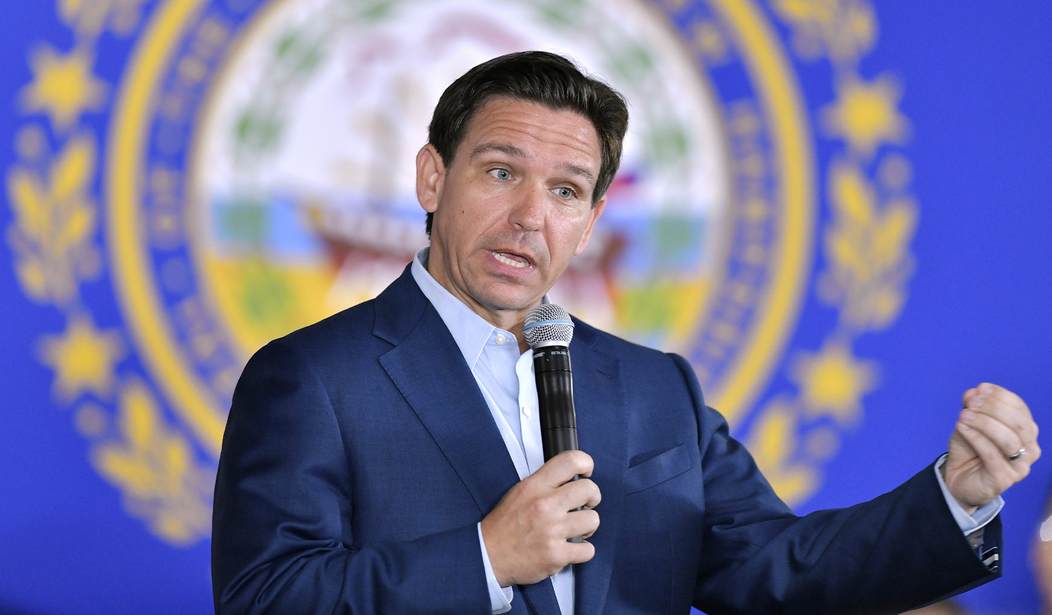The purpose of tenure is supposedly to protect professors from being targeted over their work. But what if the professors aren't really working, either not doing research or not teaching effectively? In Florida, Gov. DeSantis pushed for a post-tenure faculty review law which has been implemented for the first time this year. Some teachers have already been fired but many more have been put on notice.
Last year, Republican lawmakers in Florida passed a law requiring post-tenure reviews for professors at public universities. That wasn’t unique. But as with other policies, how administrators implement post-tenure review matters—and the board of the State University System of Florida determined that professors who receive the lowest review ranking, “unsatisfactory,” will “receive a notice of termination.” Now, the first round of post-tenure reviews has been completed. And the flagship University of Florida’s process produced a figure that has raised eyebrows among its faculty: About one-fifth of reviewed professors failed to pass muster or gave up defending their tenure.
“There’s no mincing words: Tenure’s gone. It’s been replaced by a five-year contract,” said Meera Sitharam, president of the United Faculty of Florida union’s UF chapter. She said UF’s implementation of the policy “really gives them a chance to get rid of people they don’t like.”
Other states, even California, have tenure review laws, but in most cases those are treated as a kind of performance review in which there is effectively zero chance of being fired. Florida's law is different because the lowest performing professors can be removed and the ones who need improvement are given one year to shape up or face firing. Still, the number of faculty who are facing discipline or dismissal is pretty low.
In the first year of Florida’s post-tenure review, more than half of professors — 437 out of 861 — exceeded expectations in the eyes of their universities, the data shows. These results earned some faculty one-time bonuses ranging from $10,000 at University of Florida to $5,000 at Florida A&M University and Florida Atlantic University.
Another 350 faculty met expectations according to their schools, a performance mark that is on par with the expected contributions in a professor’s area that nets smaller bonuses or pay increases.
A significantly smaller number of tenured faculty members across Florida — 64 — failed to meet expectations, which requires them to develop “performance improvement plans” with school leaders to ratchet up production or hone their teaching skills over the next year. The state’s post-tenure rule spells out that faculty who don’t meet the requirements detailed in those plans must receive a notice of termination from the university’s chief academic officer.
Further, 10 faculty members were determined to have “unsatisfactory” performance, resulting in automatic notices for termination. The tenure review data does not specify the fields taught by faculty at any performance level.
Naturally, professors are not pleased with this change and are warning it could be used to fire people over their research on unpopular issues. But the outgoing University of Florida provost said that didn't happen. As for the 10 faculty members who were fired, he said some of them "should have been fired 10 years ago."
To be fair, the new law has at least one critic who does not seem to be motivated by politics.
One UF law professor, Steven Willis, is among the plaintiffs in a lawsuit filed July 30 against the State University System of Florida board and legislative leaders, seeking a judgment that the law requiring post-tenure review is unconstitutional. It’s unclear, though, whether a victory would lead UF to drop its own policy...
Willis said he’s a Republican and Christian who’s the faculty adviser for UF’s Christian Legal Society and its Federalist Society. He supports DeSantis, and he’s not opposed to post-tenure review. But “it needed to be designed with due process so that people had a chance to be heard and a chance to defend themselves,” Willis said, “and we don’t have that.”
Any process that can lead to discipline or firing should probably offer professors some chance to defend themselves. Still, the idea of getting rid of the very worst teachers every few years seems like a positive one. It's an idea that should spread to other universities and to high schools where tenure ensures even the worst teachers, those with abysmal results year after year, are almost never fired.









Join the conversation as a VIP Member